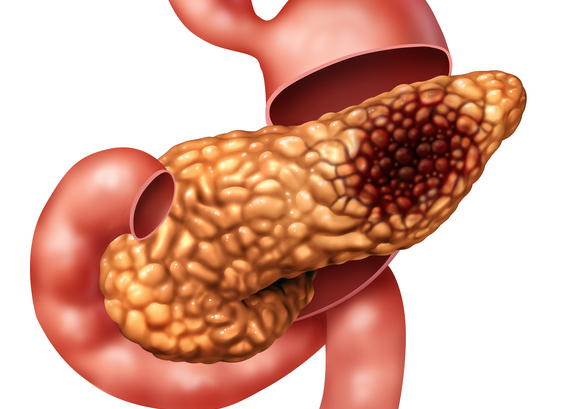
According to the National Cancer Institute, pancreatic cancer kills 50,000 people each year, and there are few effective treatment options. Now, a new mouse study by researchers at the University of California (UC), San Diego, School of Medicine demonstrates that the enzyme MICAL2 which normally plays a role in cell migration and morphology, promotes tumor growth and spread in pancreatic ductal adenocarcinomas (PDAC).
The researchers published their study in Cancer Research.
The enzyme MICAL2 plays an important role in cell migration and morphology. However, when the researchers measured gene expression in PDAC tumor cells, they found that an excessive amount of the enzyme was being produced compared with non-diseased cells—the first time MICAL2 has been experimentally linked to pancreatic cancer.
“Pancreatic ductal adenocarcinoma (PDAC) remains one of the deadliest solid cancers; thus, identifying more effective therapies is a major unmet need,” the researchers wrote. “In this study, we characterized the super enhancer (SE) landscape of human PDAC to identify drivers of the disease that might be targetable. This analysis revealed MICAL2 as a super enhancer-associated gene in human PDAC, which encodes the flavin monooxygenase MICAL2 that induces actin depolymerization and indirectly promotes SRF transcription by modulating the availability of serum response factor coactivators myocardin-related transcription factors (MRTF-A and MRTF-B).”
The researchers also discovered that among patients undergoing surgery to remove their PDAC tumors, those with low MICAL2 expression in their tumor cells survived about twice as long as those whose tumor cells produced more of the enzyme, suggesting that MICAL2 may be involved in progressing the disease to an advanced stage.
MICAL2 appears to supercharge the KRAS signaling pathway, which regulates cell growth, proliferation, and death and is known to be the primary driver of pancreatic tumor growth and the spread of the cancer to other tissues in the body. Silencing the MICAL2 gene in PDAC cells dramatically slowed the activity of the KRAS signaling pathway.
When tumor cells are deficient in MICAL2, the KRAS signaling pathway is unable to harvest nutrients that lead to tumor growth.
“This study highlights the multiple ways in which MICAL2 impacts PDAC biology and provides a foundation for future investigations into the potential of targeting MICAL2 for therapeutic intervention,” the researchers noted.
The findings suggest that MICAL2 could be a promising target for PDAC drug therapies, according to senior author Andrew Lowy, MD, professor and division chief of surgical oncology at UC San Diego School of Medicine and associate clinical director for surgery at UC San Diego Moores Cancer Center.
“Pancreatic cancer has the highest mortality rate of any common cancer and thus current treatments are woefully inadequate,” said Lowy. “We believe it will be possible to target MICAL2 with drugs as it is an enzyme in a class of proteins against which inhibiting drugs have been successfully made to treat other human diseases. We are now working to identify candidate drugs to begin the journey toward blocking MICAL2 function in pancreatic cancer.”





